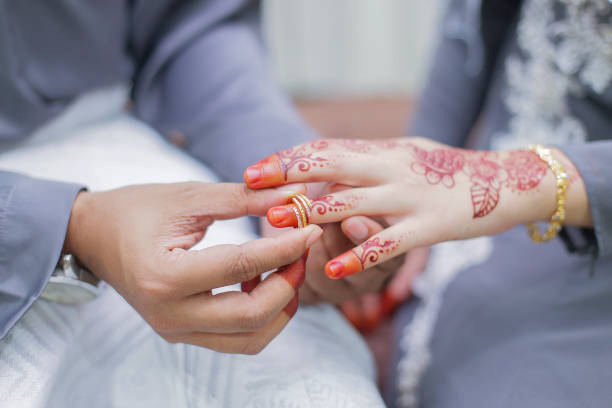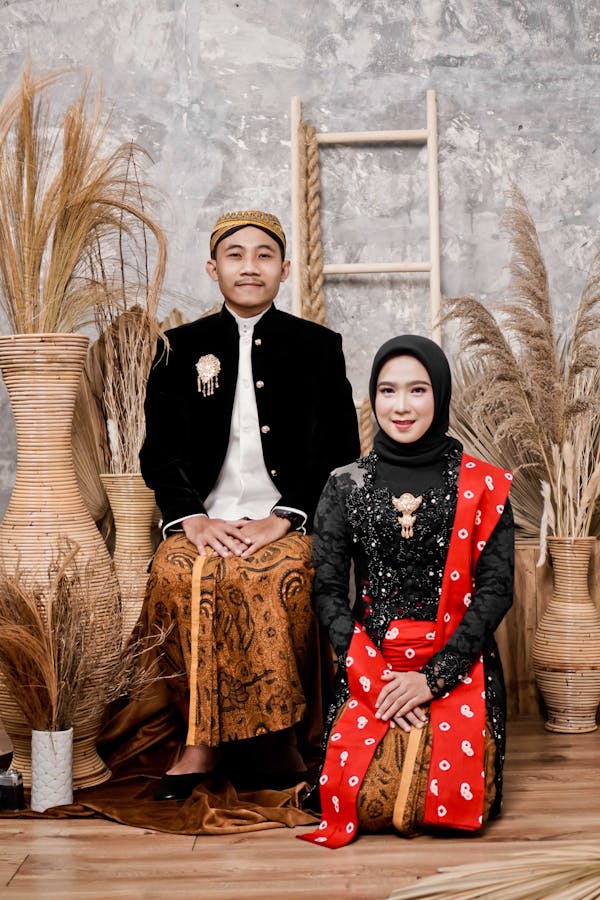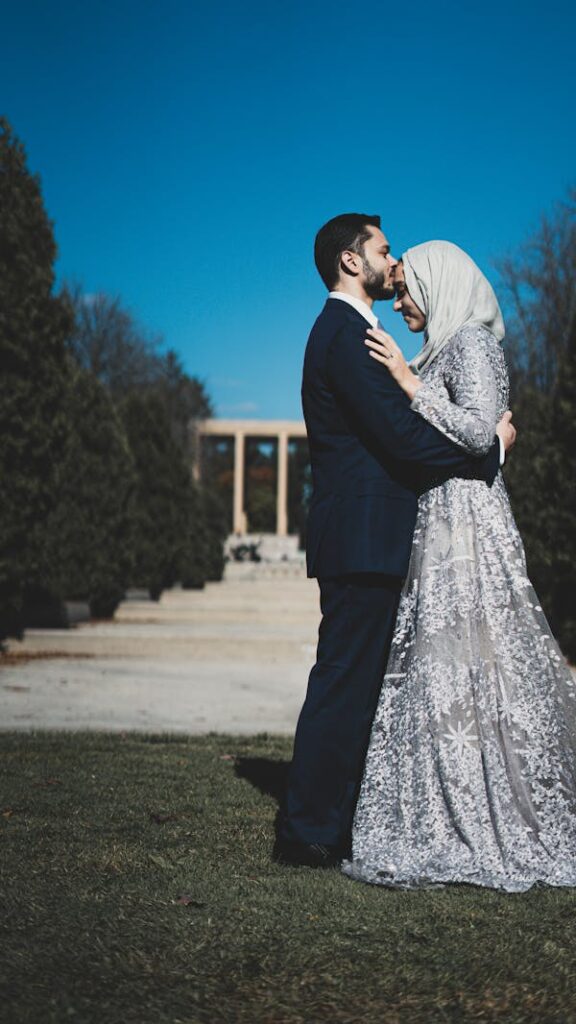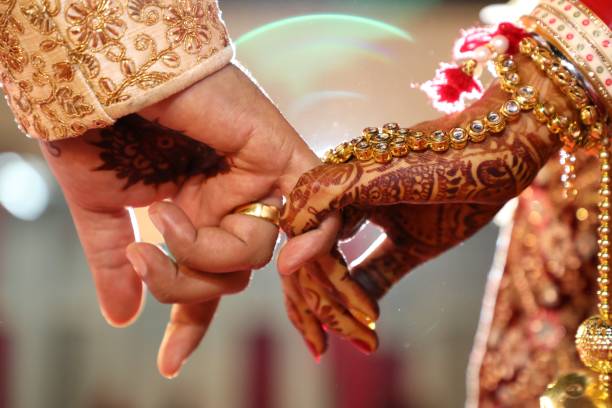Religious Muslim Nikah Marriage Ceremony (License)
The Purpose of Nikah marriage ceremony
Nikah is a religious ceremony in which a Muslim couple is legally married according to Islamic law. It is a Prophetic tradition and the only recognized way a couple can marry. After the ceremony, both can have an intimate relationship, and this ceremony makes the relationship true in the eyes of Allah.
“Among Muslims, marriage is a blessing and is considered a significant part of Islam. Family & Friends enthusiastically participate in the ceremony.
Nikah Wedding Ceremony Requirements :

There are a handful of requirements that the couple needs to meet for the Nikah wedding ceremony to take place, as mentioned below:
The Proposal (Ijaab)
The Nikah begins with a formal proposal, or Ijaab, in which the groom expresses his intention to marry the bride. This proposal is a respectful gesture showing that the groom is ready to commit to the marriage in all aspects, from love and care to responsibility and companionship.
“As was the case with Khadijah, the first wife of the Prophet (PBUH) as long as the intention of the proposal is to get married, either partner can ask for the other’s hand in marriage.
The Qubool (Acceptance)
After the proposal, the bride must formally accept the groom’s offer of marriage. This acceptance, known as Qubool, is done publicly in front of witnesses to affirm her willingness to enter into the union. It’s the key moment in the Nikah ceremony that signifies the mutual agreement of both parties.

The Mahr
Mahr is a mandatory gift from the groom to the bride, and it’s an essential part of the Nikah ceremony. This gift can be money, property, or any item of value, agreed upon by both parties. The purpose of the Mahr is to symbolize the groom’s commitment and provide financial security for the bride.
The Wali (Guardian)
In Islamic tradition, the bride’s Wali, typically her father or a close male relative, plays a crucial role in the Nikah ceremony. The Wali ensures that the bride’s rights and best interests are respected throughout the process, giving her the emotional and legal support needed. Before the bride’s father can perform the duties, however, he must first obtain his daughter’s permission. If the bride’s father is dead or unable to take her down the aisle for any other reason, a guardian or other male relative, usually a grandfather, elder brother, or cousin, must take over this role.
The Witnesses
For a couple to have their marriage recognized by Allah Two Muslim witnesses are required to validate the Nikah ceremony. These witnesses ensure that the marriage is carried out publicly and transparently, adhering to Islamic laws. Their role is to confirm that both the groom and bride enter the union willingly. The wali is generally prohibited from acting as a witness, and in all cases the witnesses must personally see the bride and groom.
The Officiant
An officiant, usually an Imam or a person knowledgeable in Islamic jurisprudence, conducts the Nikah ceremony. The officiant ensures that all aspects of the ceremony align with Islamic teachings and that both parties fully understand the responsibilities and rights they are about to accept. As with any other wedding ceremony, an elder will conduct the service, but any Muslim spouse can do the honour. Usually, this person is a man, but in some more progressive communities, a female elder can also step up to the plate.
The Marriage Contract
The Nikah contract, or Aqd-Nikah, is a legal document signed by both the groom and bride during the ceremony. Signing the marriage contract is one of the important steps in the nikah. This contract outlines the terms of their marriage, including the Mahr and any additional conditions mutually agreed upon. It serves as the official record of the union.

The Marriage License
If you are having the nikah at a local Masjid, you may have to obtain and complete a marriage license before the ceremony. For those who perform their religion in an Islamic country, your Imam will register your marriage with the government after the service. In many places, a civil marriage license is required in addition to the Nikah contract to ensure the marriage is legally recognized by the state. This document allows the couple to benefit from the legal rights and responsibilities conferred by marriage in their country.
A Summary of the Information
In essence, the Nikah ceremony is a solemn and beautiful occasion that marks the beginning of a lifelong journey between two individuals. It is rooted in Islamic tradition and emphasizes consent, respect, and mutual rights, making the bond sacred in both a religious and social sense.
Both man and woman must willingly consent to the marriage before it takes, place. The marriage must be made public, with two witnesses from each side present at the ceremony. Islam does not allow secret marriages. The groom and the bride’s guardian must be present at the Nikah.
To make the Nikkah valid, two male adults must also be present. Two adult females and one male adult must be present if two male adults are unavailable. The Nikkah cannot take place without witnesses.
One party either Groom or Bride must be a citizen of Pakistan. The groom should be 21 years of age and the bride of 18 years. (As on the Marriage Date).
According to Islam, is it allowed to take a shower or bathe with your spouse? Yes, of course. It’s possible to get so carried away that a (second) ghusl is needed, but it’s a great deal of fun and has the best of precedents. Spouses are encouraged to play with each other.
The only two things explicitly forbidden between a husband and his wife are Vaginal intercourse during menstruation. Anal intercourse.
The Sunnah way of Islamic marriage is to perform the Nikah in a Mosque with simplicity and in the presence of very close relatives. The family of both the bride and groom can feed the poor and any traveller who crosses by.
Islam does not allow any sort of pre-marital relation, whether they relate to kissing, hugging, or even touching. Men and women are not to be mingled. They have to be protected as this can be very strong for human psychology and premarital relationships can harm the marriage life of both genders.
What is the Biggest Rule of Marriage?
The fundamental rule of Islamic marriage is mutual consent and respect. Both partners must willingly accept each other, and the relationship is built on compassion, understanding, and equality. The Prophet Muhammad (PBUH) emphasized treating one’s spouse with kindness and affection.

Responsibility in Islamic Marriage
In an Islamic marriage, the husband and wife have distinct yet complementary responsibilities. The husband is typically seen as the provider, while the wife often takes care of the household. However, Islam encourages shared responsibilities and mutual cooperation in fulfilling family duties.
FAQ's
How Long Can Husband and Wife Live Separately in Islam?
Islam encourages married couples to live together, but if they must live apart, scholars suggest it should not exceed four months without valid reasons. Prolonged separation can harm the relationship, so efforts should be made to reunite as soon as possible.
Can the Husband See the Wife’s Private Parts?
Yes, Islam permits both husband and wife to see each other’s private parts. The marital relationship is intended to foster intimacy and closeness between spouses, and there are no restrictions on such matters within the boundaries of marriage.
Can a Married Couple Use Condoms in Islam?
Islam permits the use of contraceptives, including condoms, as long as both partners agree. The intention behind using contraception should align with mutual understanding and should not harm the spouse or go against Islamic ethical guidelines.
Can a Husband Touch a Wife’s Breast in Islam?
Yes, physical intimacy, including touching the wife’s breasts, is permitted in Islam as part of the marital relationship. Such acts are considered normal expressions of love and affection between a husband and wife, as long as they respect each other’s comfort and consent.
